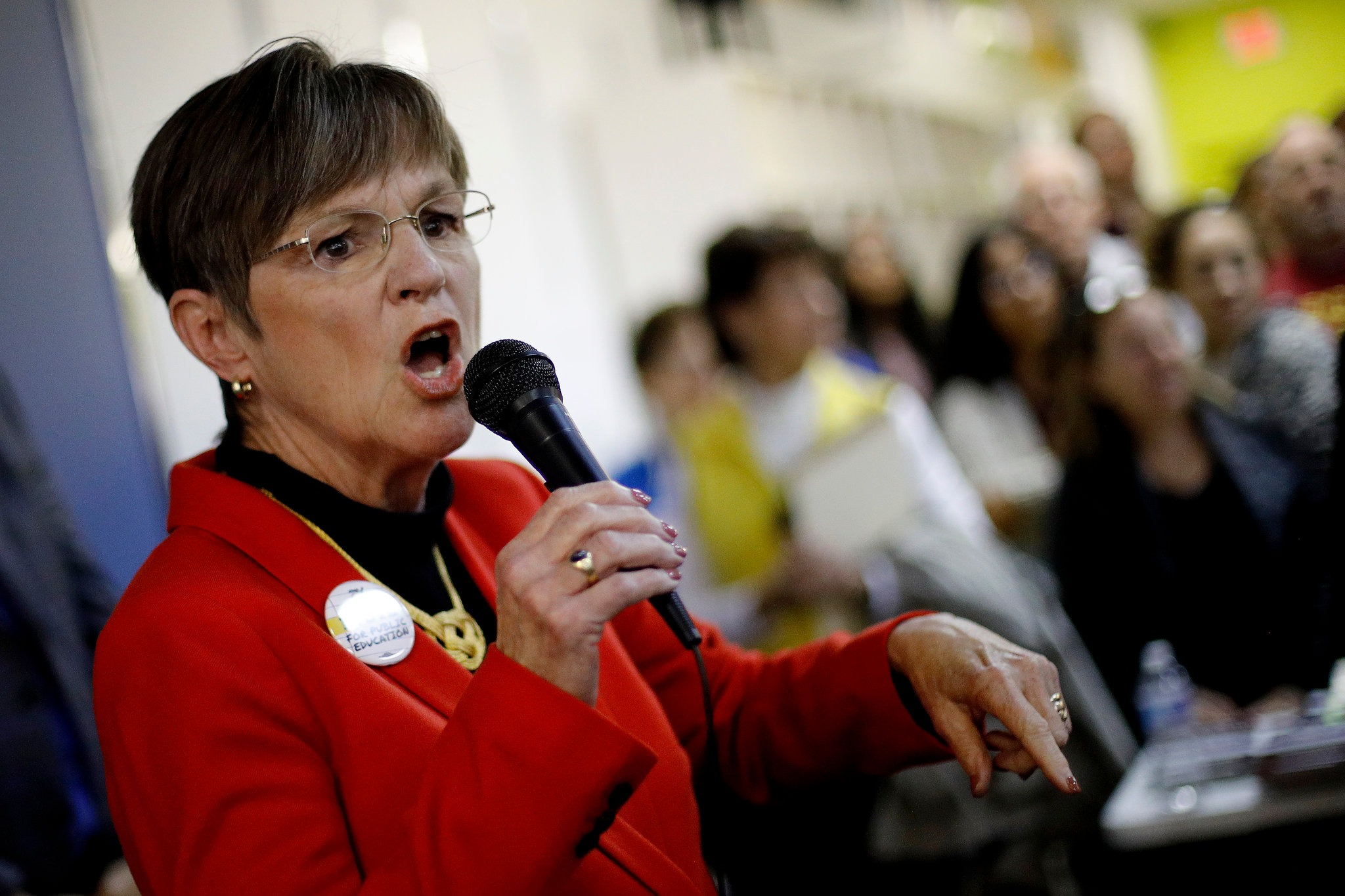Kansas Governor Laura Kelly vetoed several legislative proposals affecting transgender and abortion rights, setting the stage for potential clashes with the state’s Republican-dominated legislature.
Among the measures vetoed were a ban on gender-affirming care for minors, increased reporting requirements for abortion providers, and a bill that aimed to criminalize coercion into abortion, which Kelly described as “vague.”
Governor Kelly, a Democrat, has been a vocal supporter of LGBTQ+ rights and abortion access, aligning her stance with the views upheld by the Kansas Supreme Court and reinforced by a statewide vote.

In 2019, the Kansas Supreme Court recognized abortion as a constitutional right under the state constitution, a decision affirmed by voters in 2022 who rejected an amendment that would have allowed the legislature to impose stricter abortion regulations.
Kelly Asserted That Such a Prohibition Infringes on Parental Rights and Unfairly Singles Out a Vulnerable Segment of the Population
In her veto message, particularly regarding the abortion reporting bill, Kelly emphasized that voters have clearly expressed their desire not to have politicians interfere with private medical decisions between doctors and patients. Her vetoes reflect this sentiment and her commitment to upholding the constitutional rights recognized by the state’s judiciary.
The gender care ban for minors, which Kelly also vetoed, would have prohibited surgeries, hormone treatments, and puberty blockers for those under 18, restricting treatment to therapy alone. Kelly argued that such a ban infringes on parental rights and unjustly targets a vulnerable group of the population.
She underscored the disproportionate focus on this issue, suggesting that broader attention to educational enhancements could benefit the majority of students more importantly.
The bill’s proponents, including Senate President Ty Masterson and House Speaker Dan Hawkins, both Republicans, have defended the ban as a protective measure against what they deem experimental and potentially harmful medical treatments for children.
Their stance mirrors actions in other Republican-led states and contrasts with the recommendations of major American medical associations, which support gender-affirming care as beneficial for the mental health of transgender minors.

Despite her vetoes, the potential for these bills to become law still exists, as the Kansas legislature holds a Republican supermajority capable of overriding the governor’s decisions. The outcome will likely depend on legislative attendance and the willingness of lawmakers to challenge the governor’s vetoes.
In addition to these controversial bills, Governor Kelly allowed a law to pass without her signature that mandates adult verification on pornography websites for Kansas visitors, starting July 1. This law aligns with similar legislation in other states but has raised concerns regarding privacy and its broad application.
The political dynamics in Kansas continue to highlight the tension between state executives and legislatures over sensitive social issues with serious implications for the rights and well-being of its residents.


